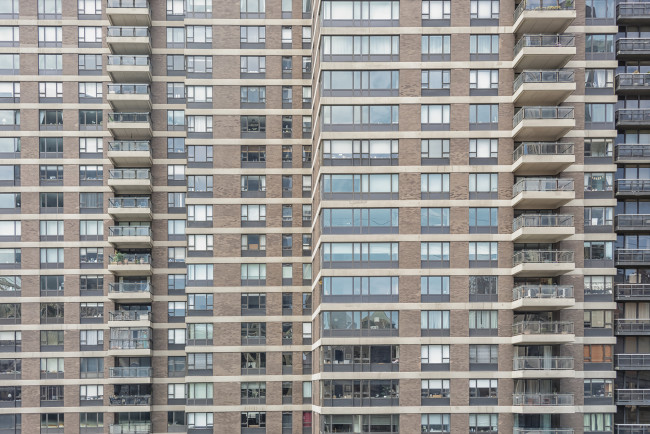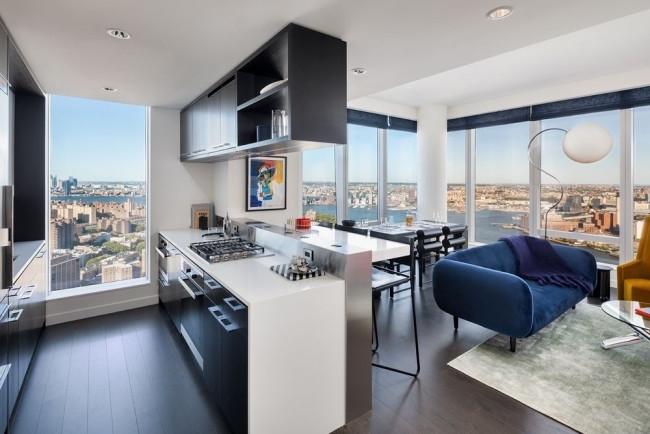Renter to owner: What to know about buying the NYC apartment or townhouse you are renting

There are a lot of advantages to buying the place you rent—you'll save time and money, plus you know the apartment, building, and neighborhood already.
Emily Myers for Brick Underground
Would you buy the New York City apartment you are renting if you had the chance? It's a possibility if you are renting a condo, co-op, or townhouse and the owner wants to sell, or if you rent in one of the few NYC buildings that has a rent-to-own program.
There are a lot of advantages to becoming an owner of a place you already rent, if you can swing it financially: You know apartment, the building, and the neighborhood. You know if it is a noisy block or not, if there are leaks or other structural problems, and whether you like living there—perhaps the most important detail.
And it's a way to save a lot of time and money. You'll avoid the hassle of apartment hunting, you may be able to skip the inspection, and may get more favorable terms. You'll also bypass packing up and paying for movers.
Read on for more on the advantages, and what to watch out for, when buying a place you rent.
You'll need an appraisal—or two
You won't need a buyer's broker if you already live in the apartment you want to buy, but you'll want to get an appraisal of the apartment to make sure you have a reasonable asking price in mind.
There are some apartment buildings where the rent-to-buy option is available when you sign a lease. For example, Extell, the developer behind One Manhattan Square on the Lower East Side, will credit a full year’s rent toward the purchase price if you buy the apartment you're renting within 12 months. In this situation, many of the terms of the purchase are negotiated prior to signing a lease, including the sales price.
If the option to buy is not included in the lease (as in most rental arrangements), Jonathan Miller, president and CEO of appraisal firm Miller Samuel, offers a valuation service for existing tenants and owners. He points out an appraiser who has come to you through a recommendation is preferable to someone you find online. Miller says you may consider getting more than one appraisal if you don't have a personal recommendation.
You have the opportunity for favorable terms
Attorney Craig L. Price, a partner at Belkin Burden Goldman, recently closed a deal for a buyer of a Manhattan townhouse who had been a tenant there for two years. "They knew the owner was listing and they decided to purchase," he says.
If the landlord-tenant relationship is good, a tenant-buyer might be able to negotiate terms in their favor. For example, Price's townhouse buyer was able to delay the closing while he waited for a bonus to help finance the deal. "Often sellers want to close quicker, but because of the relationship, they were able to get a protracted closing period," Price says.
If your lease has a built-in option to purchase, as in a rent-to-own situation, Price recommends negotiating the terms and conditions of the contract upfront before you begin lease. You can agree to the form of the contract—for example, the financing requirements and the timeline to exercise the option to buy—but if possible you might want to leave some room for negotiation on the purchase price.
Be clear about repair obligations and risk of loss
In a situation where you're buying your rental, you'll need to be clear about the obligations for repairs. For example, if the dishwasher needs repairing or the dryer breaks as you are negotiating the sale, it's important to know who will be taking on the responsibilities for maintenance. While you are a tenant, your landlord will need to keep the apartment safe and livable and provide certain services based on the provisions of the lease.
You'd typically be buying the property in an "as is condition," Price says. You need to make sure this is squared away under the terms of the contract of sale.
Another consideration is the risk of loss in the period between the contract signing and closing. Price points out most contracts are governed by laws that put the risk of loss up to closing on the seller so if there's damage a buyer has a way out if it exceeds a certain threshold. If the apartment is already occupied by the tenant, that liability becomes yours. "The tenant being in occupancy shifts the burden from from the seller to the buyer," Price says.
So if there's a fire in the period between signing the contract and closing the sale, the tenant would not be able to cancel the contract. In this situation, "the tenant would need to continue forward and deal with the insurance and repairs," Price says.
You may need to get board approval again
Another consideration when you purchase a co-op that's being rented to you: You may need to get board approval again. "It’s not automatic," Price says.
You'll need to find out whether the board needs a new application or whether they'd accept documents submitted during your lease application, says Elise Kessler, attorney at Braverman Greenspun. "That could make the tenant a desirable applicant," she says, especially if rent's has been paid on time and the apartment has been well cared for.
In a condo, the board will need to waive the right of first refusal for the sale to be completed. Kessler recommends, if possible, starting negotiations well in advance of your lease expiration date. You need enough time to negotiate the terms of the purchase, submit a board application and obtain board approval before the lease expires, she says.
One other issue Kessler points out is whether the rental broker involved in your original lease transaction is entitled to commission if you buy the apartment. Sometimes these provisions are included in a lease. If there is commission due, Kessler warns it may make you "less desirable if the unit owner thinks the unit can be sold without a broker." You'd obviously need to know who is obligated to pay the brokerage commission. It's usually the seller.
You should still do due diligence on the building
You will know the building, having lived in the apartment, so you may not need an inspector. However, you'll still want to carry out a level of due diligence that's necessary for buyer.
For example, you'll want to make sure the building has good financials and you are not facing a large assessment that could change your financing equation. After all, a large assessment or pending capital improvement could be one of the motivators for the owner to sell.
You Might Also Like



























